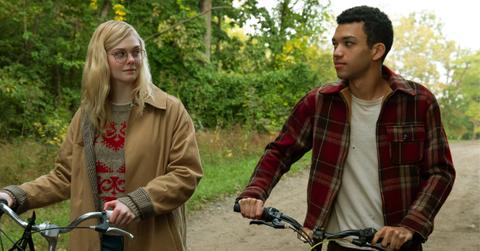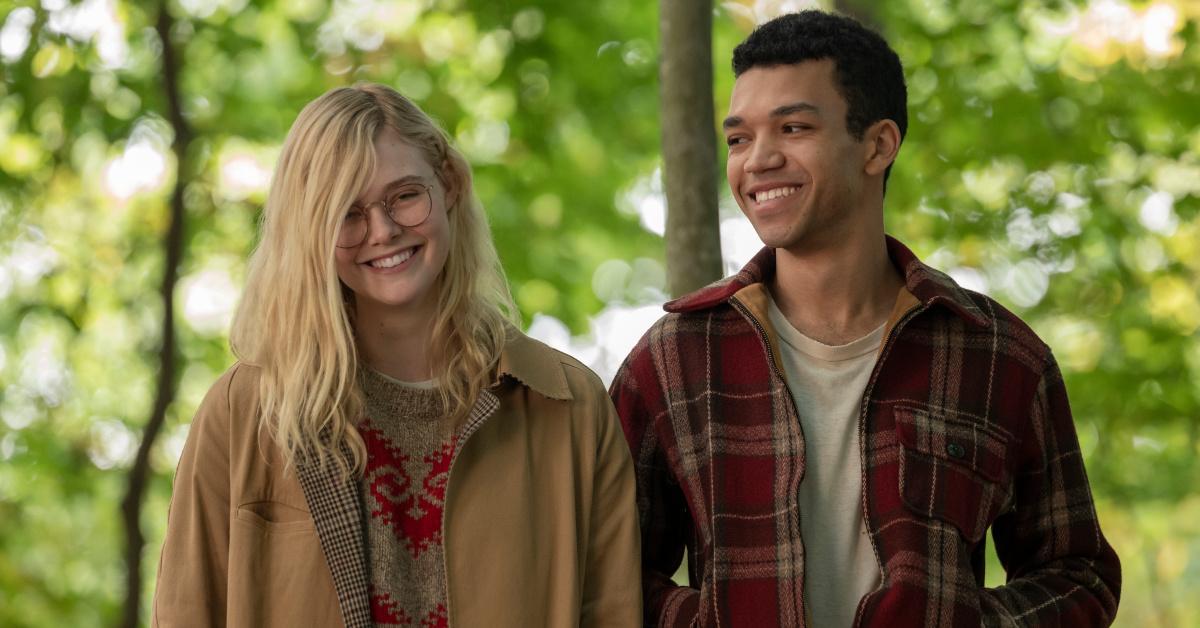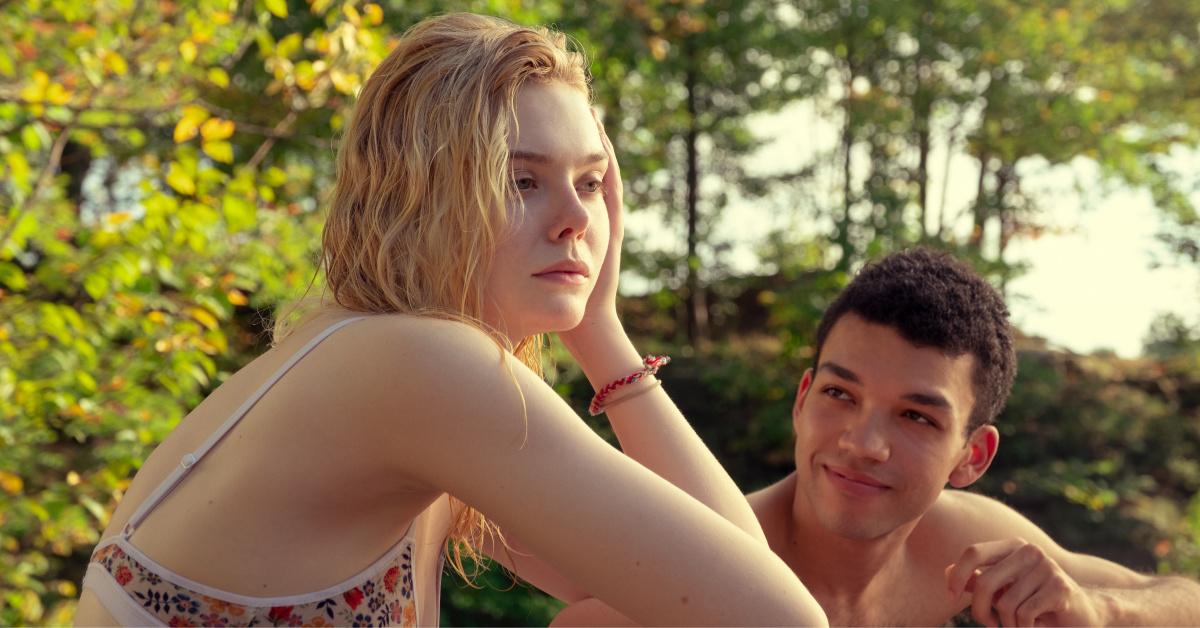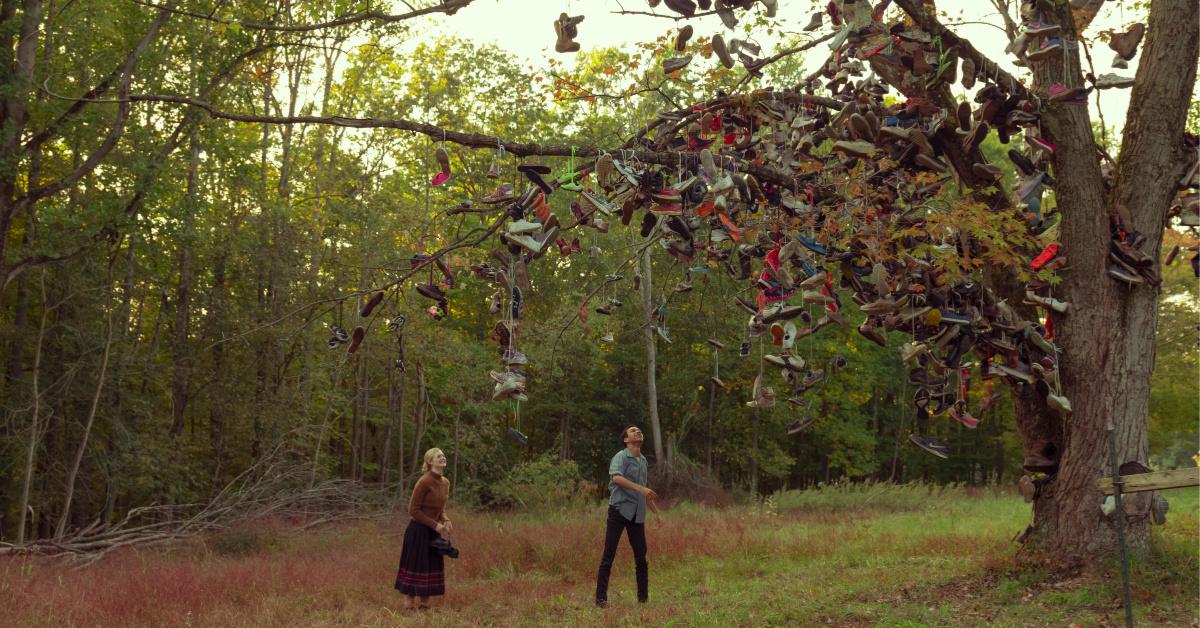Netflix’s 'All the Bright Places' Is Definitely NOT a Rom-Com (SPOILERS)
Updated Feb. 28 2020, 2:05 p.m. ET

If you only watched the trailer for Netflix’s new film All the Bright Places, you might think that it’s a heartwarming romantic movie about two teens who fall in love and are able to find bright places even in dark times. In fact, there’s a line in the trailer that is exactly: “There are bright places even in dark times.”
Well, this film certainly has dark times, but we’re not totally convinced there are any bright places left once you’ve finished the movie.
If you haven’t watched the movie yet (or read the book by Jennifer Niven on which the film is based), be prepared that this article will 1) Contain a bunch of spoilers, and 2) Just be an overall huge bummer. Now, let’s talk about the heartbreaking ending of All the Bright Places.

‘All the Bright Places’ — ending explained:
Before we get into exactly what happens at the ending of All the Bright Places, be forewarned: There will be discussion of mental illness, death, and suicide. Please be good to yourself and your brain and, if you need to, read something else instead.
OK. Time for spoilers. All the Bright Places tells the story of Violet and Finch, two teens who attend the same Indiana high school. When the film starts, Violet (Elle Finch) is dealing with survivor’s guilt after the death of her sister Eleanor. Finch (Justice Smith) is battling an unidentified mental illness — he tells Violet that he occasionally has “dark moods” and “get[s] a little lost sometimes.”
The two start spending more and more time together, first because it’s required for a school project, and then because they’re starting to have feelings for one another. But, like we said, this is not a romantic comedy and it does not have a happily-ever-after ending.

Finch dies at the end of the movie. His death isn’t shown or specifically labeled a suicide. All we know is that his clothes were found near a lake where he and Violet had previously gone swimming together. It’s implied that Finch drowned, although, again, we don’t find out whether his death was intentional.
Author Jennifer Niven says the story couldn’t have ended any other way.
In an interview for the WHSmith blog, Jennifer said that the character of Finch was based on a boy she had loved when she was younger, and who also suffered from mental illness and died.
When asked whether she had ever considered an alternate ending to the story, she said: “I never questioned how All the Bright Places would end. I knew in my bones that the only ending could be the one I wrote, not just because too many stories about teen mental health are tied up in neat little packages with bows on top, but because it’s the ending I lived with the real-life Finch. It was the story I knew.”

Of course, the film didn’t necessarily have to end the same way, and the filmmakers did actually change some things about the story. Director Brett Haley said they met with “many, many mental health professionals about the script,” and made some tweaks to the story as a result.
For instance, Finch doesn’t explicitly state that he’s suicidal in the film. He also is not diagnosed with a specific mental illness (at least not on screen). “We did not want to make a blanket statement and say, ‘Oh, well, this is how the disorder is,’” Brett said.
After the controversy surrounding Netflix’s 13 Reasons Why and its depiction (and, in some people’s opinion, glorification) of suicide, Brett wanted to be sure not to make the same missteps with All the Bright Places. Instead, he aimed to open a dialogue about mental illness and give people tools to talk about their struggles more openly.
The film ends with information about how to seek help. Netflix is also releasing a roundtable discussion on social media that features Jennifer Niven, Elle and Justice, and mental health professionals. Whether that’s enough to avoid controversy remains to be seen, although we certainly applaud those involved with the film in trying to do their due diligence in presenting this heartbreaking story.
If you or someone you know is contemplating suicide, call the National Suicide Prevention Lifeline at 1-800-273-8255.